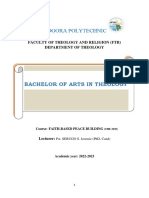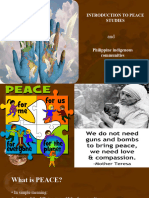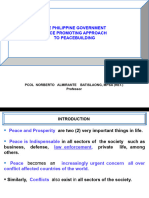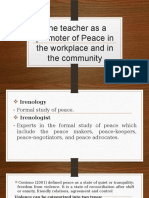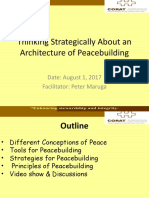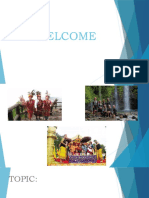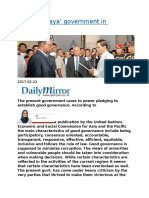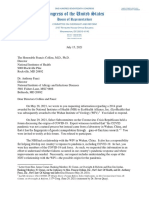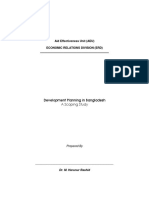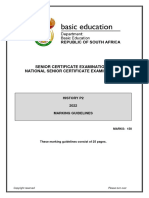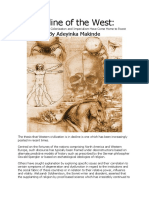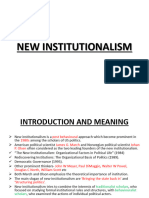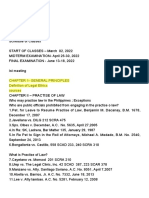PROGRAMS AND ACTIVITIES
The Institute shall pursue the following areas of programs and activities:
1.PEACE EDUCATION
1.1 Introduce and integrate peace studies at all levels of education in the University.
1.2 Develop teaching modules/materials on some post-settlement peace building themes such
as mechanism for transitional conflict management, economic reconstruction, transitional
justice, etc;
1.3 Build a library through a collection of resource materials on peace and peace building
themes, justice, development, etc;
1.4 Raise awareness on the root causes of conflicts, violence and peace lessness at the
community, regional, national, and international level; and
1.5 Develop values and attitudes, which will encourage people to move to action for building
more peaceful individuals, communities, societies, and ultimately a more peaceful world.
2.RESEARCH
2.1 Explore innovative, nonviolent approach to conflict management at all levels.
2.2 Investigate causes and possible solution to economic and social problems.
2.3 Study and publicize concern for human rights.
2.4 Understand and improve majority- minority ethnic relations.
2.5 Seek ways to more utilize law, medicine, politics, religion, culture, international relations,
commerce, media, etc in promoting peace.
2.6 Examine and share possibilities of non-military national defense.
2.7 Determine advantages of revival of traditional mediation and conflict management.
2.8 Determine relationships between local, national and global problems.
2.9 Seek linkages for cultural and economic development with the other Asian neighbors
particularly Brunei, Malaysia and Indonesia.
3.PEACE ACTION
3.1 Offer venue for scholars, students and other advocates for peace building in the region who
could utilize resource materials for their research, teaching and advocacy.
3.2 Offer short courses, lectures, seminars, and workshops in peace studies for religious, private
and government personnel as part of peace advocacy.
3.3 Invite peace scholars to offer courses, lectures, and seminars on human rights, non-violent
conflict resolutions, modulations and disarmaments, gender issues, environment and
sustainable development, ethnicity, social justice etc;
3.4 Establish a network of linkages, exchanging information, and coordination with other peace
institutions throughout the world;
3.5 Promote peace thinking and action through effective use of various organization, media and
fora;
3.6 Encourage possibilities for nonviolent alternatives.
�3.7 Implement traditional and other effective practices mediation in family, community and
labor dispute.
3.8 Participate in worldwide, nonviolent publication and correcting human rights abuses.
3.9 Engage in interethnic dialogue.
3.10 Assist government, religious and private sectors to correct misunderstandings and
discrimination found in minority-majority and ethnic relationships.
3.11 Encourage self-critical understanding, responsibility in finding solutions to family,
community, national and global problems.
3.12 Institutional Transformation Towards Building a Culture of Peace (the community in this
case should be given greater role in the achievement of sustainable peace through the
participation of the traditional leaders)
3.13 Strengthen the linkages and implement traditional and other effective practice of
mediation in family, community disputes.
3.14 Initiate conferences, seminars and other community activities relating to human rights,
peace building and conflict resolution;
3.15 Maintain programs and activities in the radio section and two- way radio to inculcate in
the minds of the people the importance and beauty of peace.






















